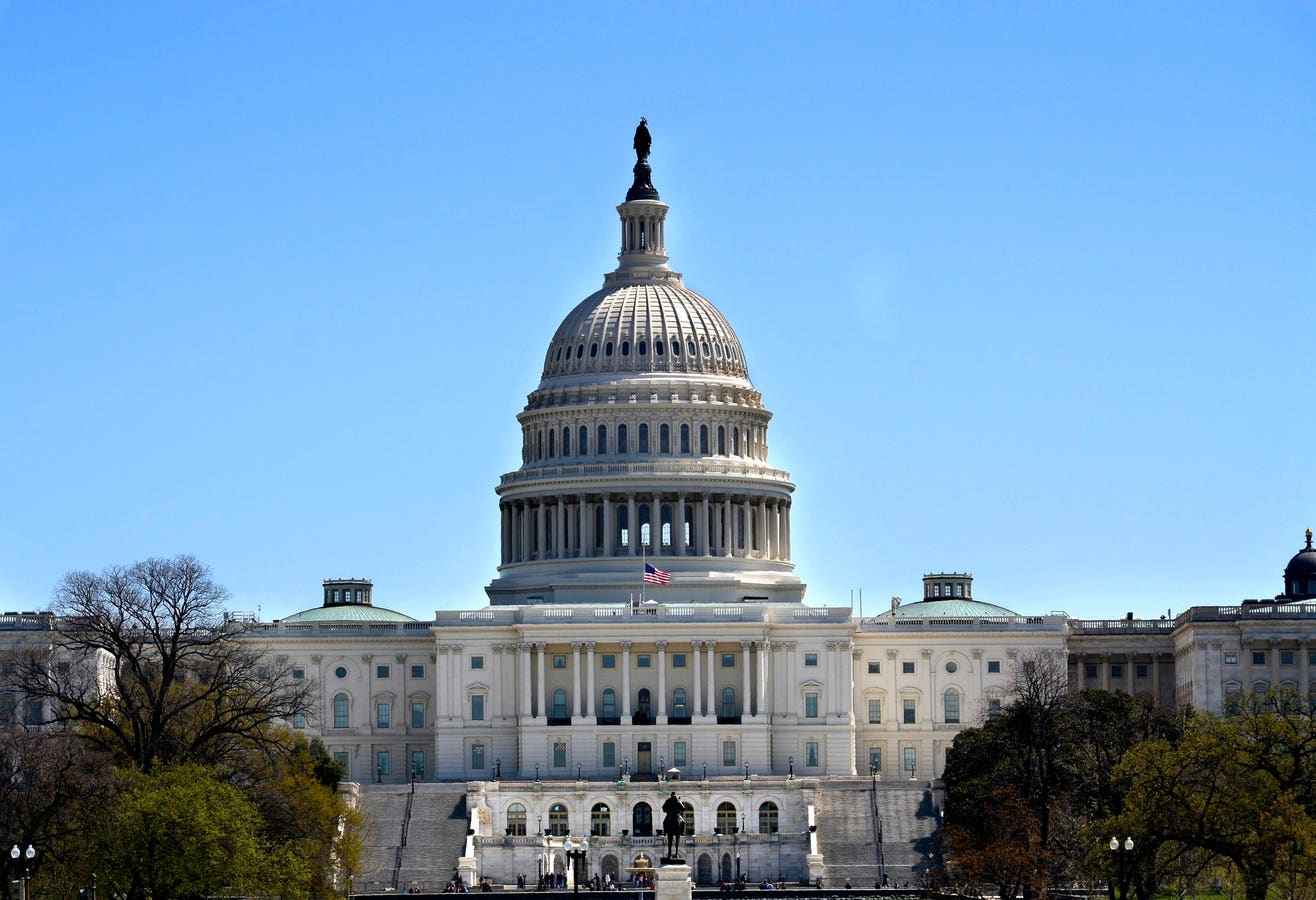How New US Blockchain Legislation Could Transform Global Infrastructure

Will New blockchain Legislation Spark Innovation in the U.S. Like the 1996 Telecommunications Act?
On June 17, 2025, a significant milestone was reached when the U.S. Senate approved the GENIUS Act of 2025 (Guiding and Establishing National Innovation for U.S. Stablecoins of 2025). This groundbreaking legislation lays down a regulatory framework for stablecoins, marking the first substantial cryptocurrency bill to gain Senate approval in the U.S. and signaling a pivotal shift in the crypto landscape.
The passage of this bill was not without its share of contention. Democratic senators voiced strong opposition, arguing that the legislation fell short in terms of safeguards against potential abuses. They particularly highlighted the lack of anti-corruption measures aimed at preventing former President Trump and his family from benefiting financially from cryptocurrency ventures. While the House of Representatives still needs to ratify the bill before it can be signed into law, this Senate approval signifies a crucial turning point in the crypto industry’s pursuit of legitimacy in Washington and beyond.
A Pivotal Moment in Digital Governance
This legislative achievement arrives at a crucial juncture in the realm of digital governance. Reflecting on the internet’s evolution in the mid-1990s, it is evident that the digital landscape has transformed dramatically since then. At that time, digital identity was largely limited to email addresses, and the concept of data ownership was largely misunderstood. The notion that individuals could have genuine control over their personal information online seemed far-fetched.
Back then, distributed technologies were primarily discussed in academic circles, with few recognizing their potential to revolutionize digital ownership, identity, and governance. Today, as Big Tech continues to exert its influence, we may be on the verge of a significant shift—the establishment of new regulations governing our digital environment.
Political Tensions and Missed Chances
The advancement of blockchain legislation unfolded amidst intense political drama. In the same week, Republicans narrowly passed President Trump’s budget reconciliation bill in a contentious 50-50 Senate vote, with Vice President JD Vance casting the deciding vote. The “One Big Beautiful Bill Act” faced backlash from both sides of the aisle due to concerns over healthcare cuts, AI regulation, and tax redistribution.
During the budget discussions, Wyoming Senator Cynthia Lummis sought to introduce amendments addressing what she termed “unfair tax treatment” for cryptocurrency miners and stakers, but her proposals did not make it to the Senate floor. Alaska Representative Nicholas Begich expressed disappointment, stating, “I would have preferred to see that provision included in the final bill. I believe there will be future opportunities to incorporate it into essential legislation.”
Political tensions were also evident in other proposals. Oregon Senator Jeff Merkley introduced an amendment aimed at prohibiting government officials, including the president and members of Congress, from owning or promoting digital assets, but this amendment was ultimately defeated.
Laying the Foundation for blockchain in America
The GENIUS Act is just one component of a broader legislative framework under consideration. Congress is also evaluating the Deploying American Blockchains Act of 2025, which is pending Senate approval. Together with initiatives for a national Bitcoin reserve and a comprehensive digital asset market structure, these proposals represent the most ambitious regulatory framework for cryptocurrency in U.S. history.
Parallels to the 1996 Telecommunications Act
The similarities between this new wave of legislation and the Telecommunications Act of 1996 are striking. Just as that landmark law opened markets to competition and provided companies with the regulatory clarity necessary to develop broadband infrastructure across the nation, the current blockchain bills aim to offer the certainty that the emerging sector has long sought.
For years, advocates within the crypto industry have claimed that regulatory uncertainty has hindered innovation. The current legislative package has the potential to create the regulatory environment needed to stimulate investment and development, akin to the $1.4 trillion that fueled the internet’s infrastructure growth post-1996.
However, the current blockchain legislation goes beyond the infrastructure focus of the 1990s. It addresses two transformative concepts that could redefine the digital economy.
1. Infrastructure Sovereignty
The first significant change involves the concept of infrastructure sovereignty. blockchain technology establishes what experts refer to as a “digital ownership infrastructure,” a decentralized network where individuals can securely manage their digital assets and identities. Unlike the centralized platforms of today, blockchain empowers users with sovereign control over their data through cryptographic keys that are exclusively theirs.
The proposed Deploying American Blockchains Act directs the Department of Commerce to create a blockchain Deployment Program aimed at bolstering U.S. leadership in blockchain technology. This initiative will develop policies, assess benefits for federal agencies, coordinate cybersecurity efforts related to blockchain, and collaborate with the private sector to identify deployment opportunities.
2. The Data Ownership Revolution
Perhaps even more crucially, blockchain legislation addresses a modern challenge that was absent in 1996: the ownership and control of the vast amounts of personal data generated by digital interactions.
Currently, individuals possess fragmented online identities and lack genuine control over their personal information. Companies routinely collect and monetize user data, often without individuals realizing the value of the information they provide. In the event of data breaches—an all-too-common occurrence—users are left to navigate a complex landscape of fraud mitigation with limited recourse.
blockchain proposes a fundamentally different approach through “self-sovereign identity.” Instead of having personal data stored on corporate servers, individuals can keep their identity information in their own digital wallets, deciding what to share and with whom. This shift is as revolutionary as the transition from centralized mainframes to personal computers.
The implications extend beyond individual privacy. Self-sovereign identity systems could pave the way for new economic activities, allowing individuals to directly monetize their data contributions rather than relinquishing value to intermediary platforms.
A Critical Window for Innovation
Countries worldwide are presented with a narrow window of opportunity to challenge American technological dominance. This U.S. legislative package—despite American companies often criticizing EU tech regulations—could solidify an even greater competitive edge for U.S. entities for years to come. The current landscape is telling: virtually no major global tech companies exist outside the United States. History indicates that first-mover advantages in establishing technological standards can be decisive, and other nations may be running out of time to create meaningful alternatives.
While the Deploying American Blockchains Act and GENIUS Act may not have the immediate transformative impact of the Telecommunications Act, they address challenges that could prove even more significant: how individuals manage their digital lives and how societies govern increasingly complex technological systems.
Historical trends suggest that nations that implement clear, innovation-friendly regulatory frameworks for emerging technologies often dominate those sectors for decades. With effective blockchain legislation, any country has the potential to shape not only markets but also the fundamental architecture of digital freedom itself.







